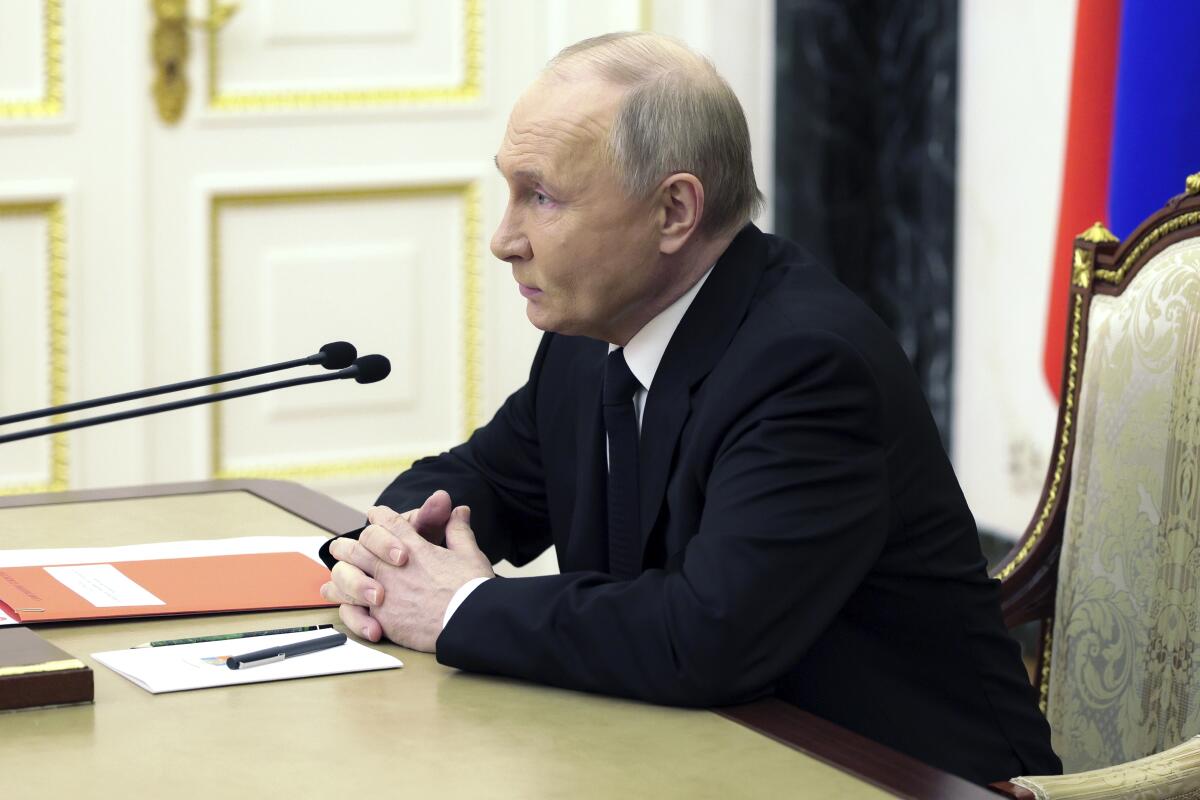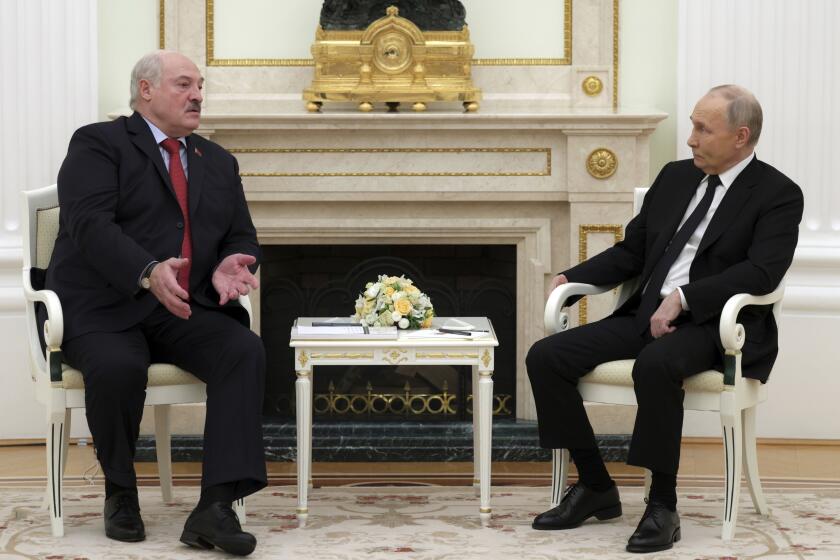Kremlin says 2022 draft document, which Ukraine rejected, could serve as starting point for peace talks

- Share via
MOSCOW — The Kremlin suggested a draft peace agreement that Russia and Ukraine negotiated in the early days of the conflict, but which Ukraine rejected, could serve as a starting point for talks to end the fighting.
Kremlin spokesperson Dmitry Peskov said Friday that the draft document discussed in Istanbul in March 2022 could be “the basis for starting negotiations.” At the same time, he noted that the possible future talks would need to take into account the “new realities.”
“There have been many changes since then, new entities have been included in our constitution,” Peskov said in a conference call with reporters.
In September 2022, Russia annexed four Ukrainian regions in a move that Kyiv and its Western allies have rejected as unlawful.
The document discussed in Istanbul weeks after Russia invaded Ukraine in February 2022 reportedly included provisions for Ukraine’s neutral status and put limits on its armed forces while delaying talks on the status of Russian-occupied areas. No deal was reached and the negotiations collapsed soon after that round of talks.
Could Ukraine lose the war? Once nearly taboo, the question hovers in Kyiv, but Ukrainians believe they must fight for their lives against Putin’s troops.
Russia has dismissed Ukrainian President Volodymyr Zelensky’s peace formula, which would require Moscow to pull back its troops, pay compensation to Ukraine and face an international tribunal for its action.
Russian President Vladimir Putin this week mocked a planned round of Ukraine peace talks in Switzerland.
Ukraine has categorically rejected the possibility of negotiating with Russia at this stage in the conflict, especially without guarantees that Moscow will withdraw from occupied areas, which currently encompass a fifth of the country. Ukraine and its allies believe Russia is seeking a cease-fire agreement now in order to buy time and bolster its forces to capture more territory.
Russian leader Vladimir Putin has mocked a planned round of Ukraine peace talks in Switzerland, warning that Moscow will not accept enforced agreements.
On the domestic front, accepting negotiations with Russia would be a deeply unpopular move and a blow to national morale after more than two years of war and tens of thousands of war dead. At the same time, Ukrainian forces are struggling to fight a better resourced and more powerful Russian military, as a new U.S. military aid package has gotten stuck in Congress.
So far, Ukrainian officials say they have not faced pressure from Western allies to negotiate with Russia.
Peskov’s statement followed Putin’s comments Thursday, in which he mocked prospective Ukraine peace talks that Switzerland is set to host in June, warning that Moscow will not accept any enforced peace plans.
“We are ready for constructive work, but we wouldn’t accept any attempts to enforce a position that isn’t based on the realities,” Putin said during a meeting in Moscow with Belarusian President Alexander Lukashenko, adding that the Istanbul draft document could serve as a basis for negotiations.
“We can work with it,” he said.
Putin has said that he sent troops into Ukraine in February 2022 to protect Russian interests and prevent Ukraine from posing a major security threat to Russia by joining NATO. Kyiv and its allies have denounced Russia’s military campaign as an unprovoked act of aggression.
Putin has vowed to extend Moscow’s gains in Ukraine, claiming that Russian forces have the upper hand after the failure of Ukraine’s counteroffensive and that Ukraine and the West will “sooner or later” have to accept a settlement on Moscow’s terms.
Meanwhile, Ukraine’s Coordinating Headquarters for the Treatment of Prisoners of War announced that the bodies of 99 Ukrainian soldiers were repatriated from Russia on Friday. Among them, 77 of the returned had fought in the Donetsk region, 20 in the Zaporizhzhia region and two in the Kharkiv region.
More to Read
Sign up for Essential California
The most important California stories and recommendations in your inbox every morning.
You may occasionally receive promotional content from the Los Angeles Times.












